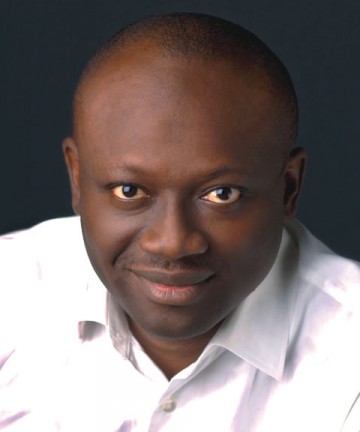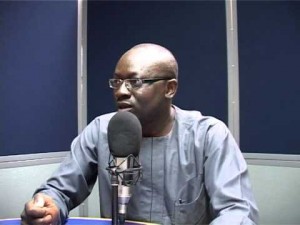Anytime I travel on the Umaru Musa Yar’Adua Expressway in the Federal Capital Territory, I get tickled. The road is so wide and smooth you could only wish for more. I remember arriving at the Nnamdi Azikiwe International Airport one evening. As the driver pedalled his taxi into kilometres of fantasy on the expressway, with bright yellow street lights mounting a guard of honour infinitely, I was on Cloud 9. I told the driver: “Do you know there is hope for Nigeria? Do you know that this same quality of road can be replicated all over Nigeria and we will not go bankrupt?” He replied: “I know. If only our leaders will stop stealing this money.” To be honest, I kicked against the diversion of FCT education and health budgets towards the expansion of the road in 2009, but today I ask myself: would the money have been spent on education and health anyway?
The Umaru Musa Yar’Adua Expressway always inspires me to think of what is possible in Nigeria. I dream of driving between Lagos and Ibadan on such a wide and smooth road. I was over the moon when President Goodluck Jonathan announced last year that the Federal Government was taking over the reconstruction of the Lagos-Ibadan Expressway, following the failure of the concessionaire, BiCourteny, to commence work since 2009. While I sympathised with BiCourteny, mainly because I was aware of all the efforts it mustered in trying to get the project going, I identified with Jonathan’s decision to move on. The road, it must be said, is too important to allow to waste. Since the motorway was dualised during the Oil Boom era of the 1970s, it has not undergone any major facelift or modernisation.
Lagos, as the economic hub of Nigeria, deserves a modern road link to the rest of the country. A reconstructed, expanded and modernised motorway holds untold benefits for virtually every facet of life: the economy, real estate, trade, tourism, safer transportation, and faster movement of goods and services, etc. Every minute of delay hurts the economy. For me, the president took a very important decision. However, there are matters arising which have to be addressed. Reports suggest that the Federal Government does not have the kind of money needed to execute the project. It is estimated that N167 billion will be needed – while the government can only raise N50 billion. This represents a funding gap of about 70%. According to the reports, N25 billion will be raised this year and another N25 billion through the Infrastructure Bank next year.
The project is supposed to be completed within 48 months (that is, four years) and at that rate of funding, something definitely has to give. What we are hearing now is that the balance will be provided by “funders and financiers”. However, in the interest of transparency, we need to understand the details of this arrangement – and I think the Minister of Works, Chief Mike Onolememen, needs to enlighten us on that. By the way, I will readily admit that Onolememen has done well on many road projects. Some projects that were idle for years have been revived while many roads and bridges are at various stages of expansion, reconstruction and rehabilitation, going by some of the pictures I have seen.
Indeed, I am also relieved that finally, preliminary works have commenced on the Second Niger Bridge – after many, many years of agitation and heartache. The bridge is an absolute economic and security necessity. We are not doing anybody any favour by building it. I am particularly impressed with Onolememen’s new proposal of the Super (Economic) Golden Triangle, which is conceived to link at least 20 states via an all-new four-to-six lane super highway. It is projected to eventually add 5000 kilometres to the existing road network in Nigeria. This is similar to what obtains in China, India, Brazil and Indonesia – economies that are growing fast. The Super Golden Triangle looks like a tall dream and a project that could take decades to complete – but, at least, Onolememen is dreaming. Imagination is the starting point of development. The fact that it will be a Public Private Partnership (PPP) also means it may turn out to be viable.
However, Onolememen has a lot of explanations to make on the Lagos-Ibadan expressway and all these PPP issues. Given that the original concession to BiCourteny was revoked, what will be the role of the proposed “funders and financiers” who are expected to make up for the 70% funding gap? Could it be that this is another concession? If “funders and financiers” are brought in, what will be the fate of Julius Berger and RCC who are the contractors currently engaged by the Federal Government? The revocation of the concession to BiCourteny came with the promise that the government would fund the project all by itself. The issue is still before arbitration. If the project is to be awarded to another concessionaire, I suspect we may be in for another round of crisis that may further delay the work.
The Ministry of Works has confirmed having issues with the funding gap, but perhaps we need further clarifications. President Jonathan said clearly when BiCourtney’s concession was revoked that the government was taking over the project. At what point did Federal Government abandon or choose to modify the award of contract to include 70% “outside” funding? Is this a form of PPP? Is it a reconcessioning? If it is, what happens to the rules governing the processes for concessioning, rules such as advertising the job for competitive bidding? Or will the “funders and financiers” emerge without competitive bidding? Would they be obliged to retain Julius Berger and RCC as contractors? Under what terms? Finally, how feasible will the 48 months delivery period be?
Now I’m thinking: was Jonathan misled into revoking the concession to BiCourteny and we are now attempting a reconcessioning through the backdoor? Why don’t we do these things the right way? This issue looks very simple, even minor, but we may be in for unending legal tussles over this all-important motorway. Ultimately, it is ordinary Nigerians that will suffer the consequences as they continue to endure hectic times on the road. And my dream of driving on an expanded, modernised motorway with street lights mounting a guard of honour from Lagos to Ibadan may be scampered.
And Four Other Things…
APC VS JONATHAN
I rejoiced at the emergence of APC but I did not expect them to be power-drunk so early in the day. The decision by the APC to use their new majority in the National Assembly to block the passage of 2014 budget is amazing. They should find a way of fighting President Jonathan without seeking to hurt the welfare of millions of Nigerians who depend on the economic activities to be generated around the budget. APC may soon realise that visiting the “sins” of Jonathan on ordinary Nigerians could boomerang, as the US Republicans recently miscalculated against President Barack Obama.
DPP DRAMA
I am still laughing. In the House of Representatives, Hon. Suleiman Yahaya-Kwambe (Plateau State) defected to APC from the Democratic Peoples Party (DPP) on Tuesday. On Thursday, the Speaker, Hon. Aminu Waziri Tambuwal, read a letter from the DPP chairman, Gen. Jerry Useni, who protested that he directed Yahaya-Kwambe to defect to the PDP and not the APC. Can you believe that? How can a party chairman direct his member to defect to another party? Is his party about to fold up? Wonder wonder wonder.
EXCESS CRUDE
One of the reasons I don’t see eye-to-eye with Nigerian politicians is that our understanding of democracy and development is poles apart. When President Olusegun Obasanjo left office in 2007, he left behind a robust Excess Crude Account of over $18 billion. Before we knew what was happening, the governors started insisting that it must be shared, that it is “unconstitutional” – just because they needed money for elections. They are even in court to scrap it altogether. Today, we have less than $3 billion in ECA. In the event of another drastic drop in oil prices, we are damned.
14-02-2015
My heart skipped a beat or two when the Independent National Electoral Commission (INEC) released the timetable for the 2015 elections. The all-important presidential election will hold on – wait for it – the Valentine’s Day! We all know there is no love lost between the combatants for the nation’s soul, but it is our duty as Nigerians to put the interest of the nation first above partisan interests. Ultimately, it is the progress of Nigeria and Nigerians that should excite us – not the personal and parochial interests of these politicians. I’m hoping for the best.


